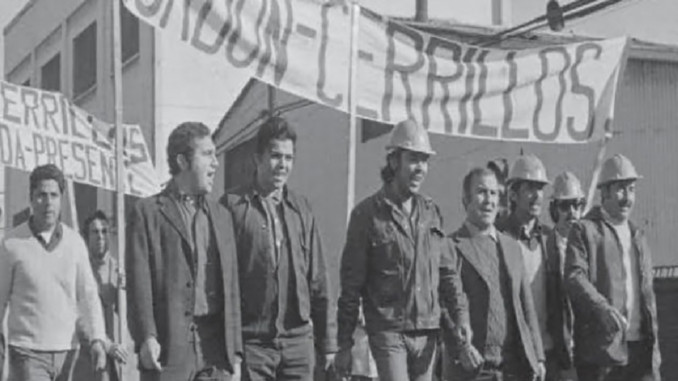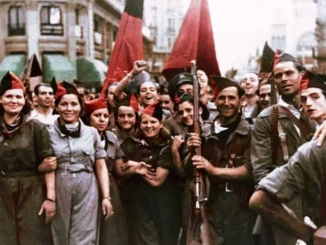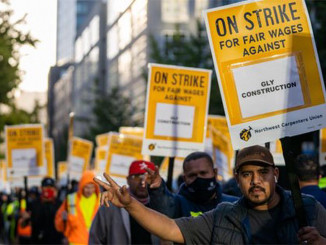
On September 11, 1973, the Chilean military, with the support of United States intelligence services, violently overthrew the democratically elected government of Salvador Allende. The documentary, “The Battle of Chile”, by Patricio Guzmán is an excellent portrayal of the events at that time. On that day, the military occupied the capital city of Santiago, bombarded the Presidential palace, and may have murdered Allende as it took control of the building.
The years immediately following the coup saw the installation of General Augusto Pinochet as the President, the repression of any left opposition, the arrests and torture of thousands, at least 3,000 murders, and drove hundreds of thousands more into exile. Most important from the perspective of Chilean capitalists and the U.S. government was that this new dictatorship was able to implement what is now called neo-liberalism – the privatization of most industries, the destruction of workers organizations, the removal of barriers to capitalist dominance or foreign capitalist investment, and the dismantling of most or all of the social safety net for the majority of working people. Since these policies are generally unpopular among the large majority of any population, violent repression of the people is often necessary to create the conditions for their implementation. This was what happened in Chile.
While the United States was partly responsible for the coup and its success (as in nearly a dozen other right wing coups worldwide from the 1950s to 1970s) it is important to note that Allende’s unwillingness to support the mobilization of organized workers on a larger scale and his attempts to appease the rightwing led to his isolation. His attempts to reconcile the needs of the workers with their upper class opponents stifled the energy of Chile’s “cordones” (worksite based, mass democratic militant workers organizations). How this took place is well-described in the essay by Mike Gonzalez entitled, “The Left and the Coup in Chile”, part of the excellent book, Revolutionary Rehearsals. He explains the potential that these workers’ organizations had, and how they might have fought off the coup attempt had they not been dissuaded by many of their leaders, and especially by President Allende. Instead, by trying to compromise with the Chilean military and capitalist class, and dampen worker militancy so as not to offend those forces, Allende effectively empowered his enemies while undermining the potential power of those who could have defended his government and fought for more revolutionary change.
The overthrow of the Allende government is correctly seen as one of many horrific moments when reactionary forces destroyed the hopes of millions and bludgeoned working people with the policies of savage capitalism. But it is also an example of what happens when working people, and the often reformist leaders they put their hopes in, try to walk a middle ground between capitalism and workers’ revolution. Capital will accept no real challenges, and therefore many seemingly mild reforms call forth violent repression.
In order to overturn it and begin to build a new, socialist world, working people will have to take power into our own hands, and we will have to be well organized and politically prepared to stand up to the reactionary forces that will stand in our way.




